We believe in one God, the Father Almighty, Creator of all things, who exists in three persons: the Father, the Son (Jesus Christ), and the Holy Spirit. Jesus Christ, the Son, is of one substance with the Father and through Him all things were made. The Holy Spirit, sent by the Father and Son, is worshipped and glorified together with them.(1Timothy 2:5; Col. 1:15-18; John 14:15-17; Acts 2-4)
We believe that humanity was created in God's image to know, love, and obey Him. Through the disobedience of our first parents, all people became alienated from God and fall under His righteous condemnation. Salvation from sin and its power is only possible through God's redeeming grace. (Titus 2:11-12)
We believe that God desires all people to return to Him and has revealed Himself through nature, providence, and human conscience. Additionally, He made Himself known through supernatural revelations to a chosen people, and most fully through His Son, Jesus Christ. (Gal. 4:4; Peter 3:9)
We believe that the Old and New Testaments are the inspired records of God's revelation through the work of redemption. Written by men under the guidance of the Holy Spirit, they lead to salvation and serve as the authoritative standard for religious teaching and human conduct. (II Timothy 3:15; II Peter 1:19-21)
We believe that God's love for humanity is fully expressed in the redemptive work of His Son, Jesus Christ. He became fully human, lived without sin, and through His suffering, death, and resurrection, became the perfect Redeemer. His sacrifice is the sole means of forgiveness and reconciliation with God. (Gal. 3:13; Heb. 2:16; 4:15; Phil. 2.:8)
We believe that after Jesus Christ's resurrection, He ascended to heaven as the mediator between God and man, continuing His work of salvation by sending the Holy Spirit to convict people of their sins, lead them to repentance, and through faith in Him, grant forgiveness and make them children of God. (1 Tim. 2:5; Eph. 1:7; Gal. 1:14; Heb 9:24)
We believe that justification is an act of God in which all past sins are forgiven through faith in Jesus Christ, occurring alongside true repentance and including regeneration or being born again. (Rom. 5; Titus 3:5; Rom. 3:24,25)
We believe that sanctification is the second act of grace where the believer is dedicated and consecrated to God in body, soul, and spirit, and can be understood in three aspects: instantaneous, progressive, and entire.
a. Instantaneous sanctification is an act wrought in connection with regeneration.
(St. John 17:17; Rom 6:22, 12:1; Heb 13:12,13)
b. Progressive sanctification is the process in which the believer continues to
grow in grace. (II Cor. 3:18; II Peter 3:18; I Peter 1:15, 16; Heb. 2:11, 12::14)
c. Entire sanctification denotes a state of being wholly sanctified, body, soul and
spirit. (I Thes. 5:23; Heb. 12:14; Jude 24)
We believe in the baptism of the Holy Ghost as the gift of power for the sanctified life. (Luke 24:29; Matt. 3:11; John 7:38-49; Acts 1:5-8, 2:4)
We believe in divine healing of the body through the atonement of Jesus, by which sickness and disease are overcome. (Isa. 53:4, 5; Matt. 8:17; Mark 16:18; James 5:14-16)
We believe in observing Sunday, the first day of the week, as a day of holy rest and worship through the ministry of the word.
We believe in the ultimate triumph of Christ's kingdom on earth, His glorious return, the resurrection of the dead, and a final judgment resulting in everlasting punishment. (Matt. 25:31-46; Acts 1:11, 17:31; Matt. 13:49; Rev. 1:7)
We believe that believers should partake of the Lord's Supper (Communion) to remember and proclaim the Lord's death until His return, with the bread symbolizing His broken body and the cup representing the new covenant in His blood, which brings forgiveness and reconciliation with God. We are called to judge ourselves, recognizing this as our salvation, and to partake worthily, as failing to honor it brings guilt. (I Cor. 11:23-31; Isa. 53:5; I Cor. 11:24; Heb. 9; I Cor. 11:25; I Cor. 11:28_30; I Cor. 11:27)
We believe in the practice of the Laying on of Hands, through which power, anointing, and other qualities can be transmitted from one person to another. This practice was used by the Levitical Priesthood, Jesus (Mark 10:13-16), and for various purposes such as baby dedication, healing, conferring office, receiving the Holy Spirit, cultivating anointing, and ordination for ministry. (Mark 5:22-23 and 41; Mark 5:28-31; Acts 28:8; Acts 19:11-12; Acts 8:16-18; I Tim 4:14)
We believe that marriage, as ordained by God from the beginning, is a lifelong union between one man and one woman. This concept is rooted in the creation account in Genesis and reaffirmed by Jesus in Matthew 19:4-6. The Apostle Paul further teaches in Ephesians 5:22-32 that marriage reflects the union between Christ and the church. The Bible condemns all forms of sexual immorality, including adultery, prostitution, and homosexuality, encouraging Christians to flee from such behaviors as they harm the body, which is the temple of the Holy Spirit. (I Corinthians 3:16; 6:12-20)

